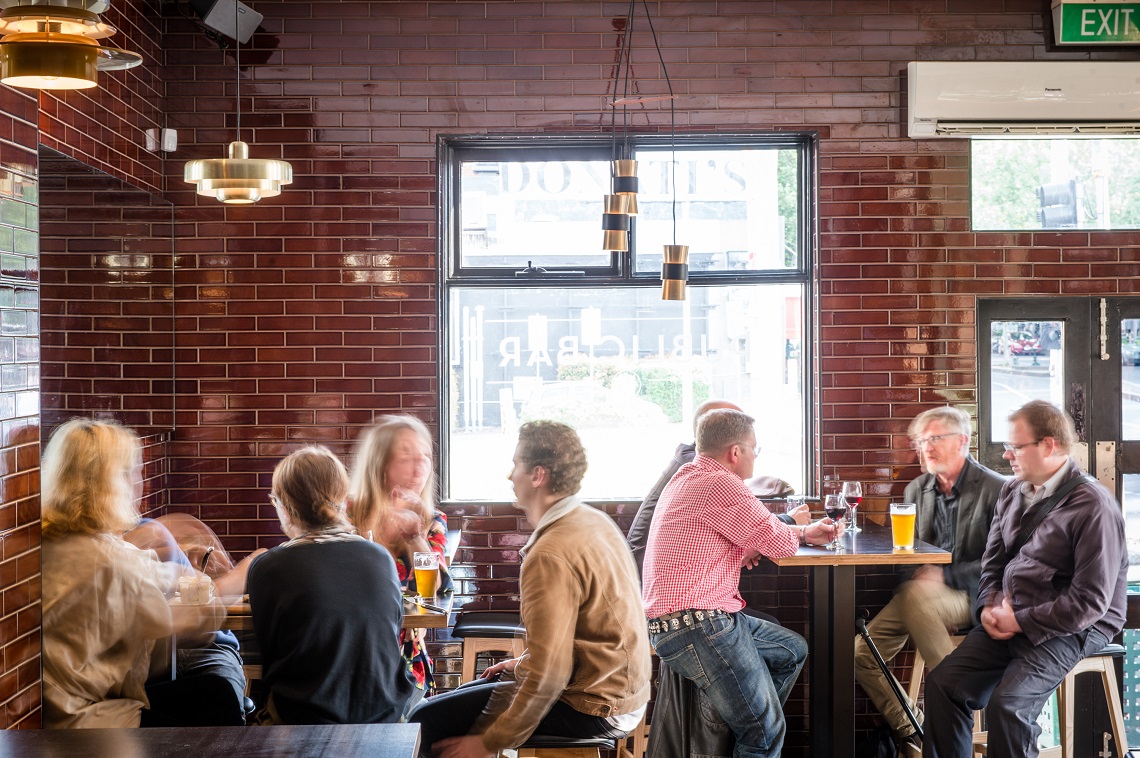Several venues across New South Wales have been fined recently for allowing various tables within their venue to mingle, contrary to the Public Health Order.
In the last week, at least one pub in Sydney and two in Lismore have copped Penalty Infringement Notices (PINs) for allowing seated groups to mingle within the venue. In most cases, the mingling between different groups has occurred when venues have taken multiple bookings of 10 that are all from the same party, but seated at separate tables.
There has been some confusion among publicans as to whether multiple bookings from the same party can be accommodated, with a maximum of 10 people per table. One publican told Australian Hotelier that while they have said no to booking inquiries that explicitly ask to seat more than 10 people over multiple tables, where larger groups have walked in they’ve made a point of seating them in separate areas of the venue to ensure that they would remain seated and would not mingle.
Another publican suggested that the wording from the State Government only focuses on maximum booking sizes of 10 people and compliance with the 4sqm rule, and that was the interpretation they’ve been following.
A spokesperson for Liquor & Gaming NSW has clarified the restrictions to Australian Hotelier, stating unequivocally that a party of more than 10 people cannot be broken up into smaller tables of 10 or less.
“The Public Health Orders and COVID-19 Safety Plans for hospitality premises require that bookings do not exceed 10 people. A single booking of more than 10 people that is split across various smaller bookings does not comply with that requirement.
“Likewise, bookings of ten or less, made under different names, for a group that is essentially one party, would be in breach of the Public Health Orders if individuals mingled across their designated tables. The rationale behind this is that there is a greater risk of mingling across larger groups as well as mingling between people that know each other.”
While this particular restriction makes it harder for pubs to attract trade within the premises, the rationale behind it is to minimise the risk of COVID-19 community transmission within high-traffic venues. Every patron brings with them a history of interaction with other people in the community and the more people in a group, the more close contacts they are sharing with that group.
Breaking up a large group of related patrons into smaller groups who then mix across the groups increases the risk to all patrons and staff.
Having discrete, smaller groups, minimises the likely interaction between these unrelated groups and reduces the number of potentially infected individuals a patron may come into close contact with during their visit.
Public on high alert
Steven Speed, managing director of WDS Hotels, was unambiguous when stating that he has not allowed multiple table bookings, arguing that the restrictions were pretty clear. And with the public still wary about community transmission, venues that take multiple bookings are risking being dobbed in by the public – as was the case earlier in the week for the Sydney pub who was fined for patrons mingling between tables.
“The public health order is pretty clear and has been for sometime,” stated Speed, who urged other operators not to take the risk.
“All you are doing is creating more stress for yourself, your staff and other customers. Everyone has a phone these days and generally people want to see the end of COVID, so when they see a venue taking the piss… you’re going to get dobbed in!”

